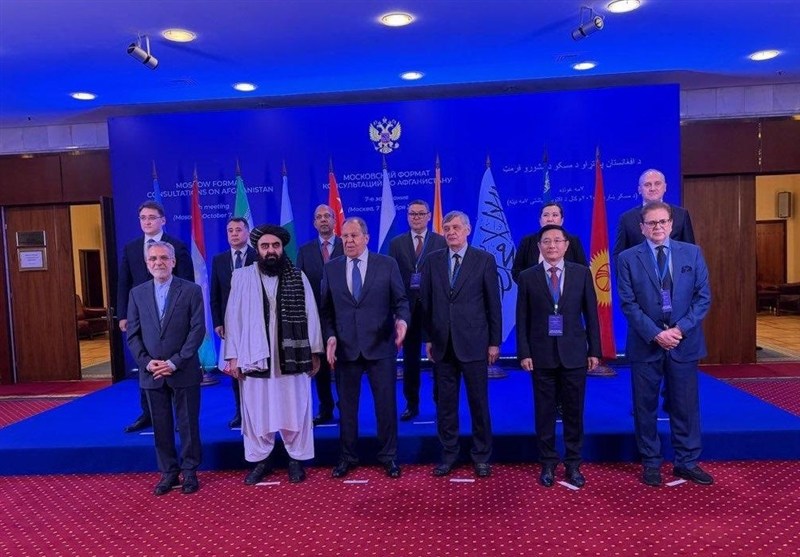The Heavy Shadow of Bagram over the Seventh Moscow Format Meeting

The seventh Moscow Format meeting was held at a time when Trump’s insistence on the renewed military presence of the United States in Afghanistan, specifically at the Bagram military base, has stirred significant sensitivities across the West Asian region.
Mir Ahmadreza Moshref, International Affairs Researcher:
Russia recently hosted the seventh meeting of West Asian countries known as the “Moscow Format on Afghanistan.” This meeting was attended by representatives from 10 regional countries, as well as Belarus as a guest member. However, this assembly was held under circumstances where, in the one year since the previous round of these series of meetings in Moscow, numerous developments have occurred both internationally and within Afghanistan. Considering these developments, several important observations can be made regarding the seventh Moscow Format meeting.
1.From Terrorist Group to Official Representative: Since the formation of the Moscow Format in 2017 until now, the Taliban have traversed a very different path within this format; from being identified as terrorist groups in the initial meetings to participating in the recent format as the official representatives of the country of Afghanistan.
Of course, this shift did not happen overnight. After a period of absence of Afghan representatives, the Taliban were invited as guests in the fifth format and as special guests in the sixth format. Now, in the seventh format, we witness the Islamic Emirate of the Taliban, alongside other countries, signing the final statement of the meeting—a matter that indicates an important evolution in the approach of regional countries, especially countries like Tajikistan, towards the sovereignty of the Taliban. However, the crucial point to remember is that such a transformation is influenced more by regional and international conditions and the renewed confrontation between the US and the Western world with the countries of West Asia, rather than being the result of internal changes in Afghanistan. A confrontation for which Bagram can currently be considered a symbol.
2.Regional Concerns over US Military Return: The seventh Moscow Format meeting was held at a time when Trump’s insistence on the renewed military presence of the United States in Afghanistan, and specifically at the Bagram military base, has provoked significant sensitivities across the West Asian region.
In this regard, both during the meeting and in the final statement, it was emphasized that any efforts by countries to establish military infrastructure in Afghanistan or in its neighboring countries is unacceptable and incompatible with the interests of regional peace and stability. Although the Taliban firmly assured regional countries in this meeting that such a handover would absolutely not happen, it seems some regional governments are not interested in escalating tensions between the Taliban and the US. For instance, Kabulov, Russia’s special representative for Afghanistan, announced that Russians welcome the continuation of talks regarding the reopening of the US embassy in Kabul.
3.Diverging Views on Afghanistan’s Internal Stability: For the first time since the inception of the Moscow Format, the final statement of the meeting paid less attention to the internal situation in Afghanistan.
Whereas previous meetings emphasized the formation of an inclusive government or humanitarian considerations in Afghanistan, or called for more serious actions from the Taliban regarding terrorism, this time these issues were less reflected in the statement.
This approach was adopted while, concurrently with the Moscow meeting, the United Nations was adopting a strongly worded human rights resolution against the Taliban, which establishes an investigative mechanism for human rights violations in Afghanistan.
This indicates that a deeper gap than before has emerged between regional concerns regarding Afghan issues and the global perspective, largely led by the West.
Source: Quds Newspaper. No. 10762

